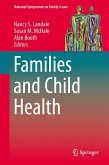This book presents a comprehensive discussion of classical ideas, core topics, currents, and detailed theoretical underpinnings in medical sociology. It is a globally renowned source and reference for those interested in social dimensions of health and illness. The presentation is enriched with explanatory and illustrative styles. The design and illustration of details will shift the minds of the readers from mere classroom discourse to societal context (the space of health issues), to consider the implications of those ideas in a way that could guide health interventions. The elemental strengths are the sociological illustrations from African context, rooted in deep cultural interpretations necessitated because Africa bears a greater brunt of health problems. More so, the classical and current epistemological and theoretical discourse presented in this book are indicative of core themes in medical sociology in particular, but cut across a multidisciplinary realm including health social sciences (e.g., medical anthropology, health psychology, medical demography, medical geography and health economics) and health studies (medicine, public health, epidemiology, bioethics, and medical humanities) in general. Therefore, apart from the book's relevance as a teaching text of medical sociology for academics, it is also meant for students at various levels and all health professionals who require a deeper understanding of social dimensions of health and illness (with illustrations from the African context), and sociological contributions to health studies in general.
Dieser Download kann aus rechtlichen Gründen nur mit Rechnungsadresse in A, B, BG, CY, CZ, D, DK, EW, E, FIN, F, GR, HR, H, IRL, I, LT, L, LR, M, NL, PL, P, R, S, SLO, SK ausgeliefert werden.









